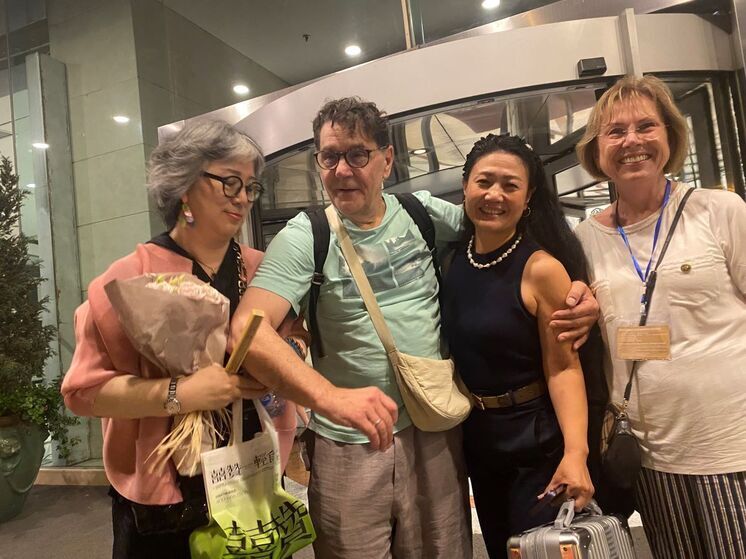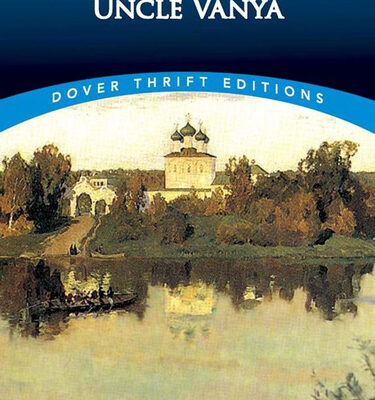In an era defined by digital immediacy, a classic Russian drama crosses continents to touch the hearts of a new generation, proving that some stories, much like the human condition itself, are truly timeless.

The digital pulse of Beijing usually dictates the rhythm of its bustling streets, a metropolis where life is often quantified, optimized, and lived online. Yet, closer to midnight on a recent Saturday, a scene unfolded near the Poly Theater`s service entrance that seemed wonderfully anachronistic: a significant throng of predominantly young people, thick booklets in hand, patiently awaiting the exit of Russian actors. This was no K-Pop idol meet-and-greet; this was the aftermath of Anton Chekhov’s “Uncle Vanya,” performed by Moscow’s esteemed Vakhtangov Theater.
A Daring Foray into Russian Melancholy
The Vakhtangov Theater`s tour in China had already achieved resounding success with “Eugene Onegin,” which, according to national ratings, consistently scores a remarkable 9.2 out of 10. However, bringing Chekhov to a modern Chinese audience was, as one might imagine, met with a degree of apprehension. “We show a lot of Chekhov here,” explained translator Yana, “different plays, including `Uncle Vanya.` But there’s a slight disappointment after your MXAT brought `The Seagull` here recently.” The implication being, of course, that not all Russian classics translate equally well, literally or emotionally.
Despite these underlying concerns, the initial showing saw the 1,500-seat hall filled to about 80% capacity. Tickets, ranging from 180 to 1080 yuan (roughly 2,000 to 20,000 Russian rubles), commanded prices that would feel quite at home in Moscow. The Russian-speaking contingent in the audience was, by all accounts, sparse – a clear indication that the appeal was genuinely local, and not merely a diaspora appreciating a slice of home.
The Art of Imperfect Translation and Universal Truths
Backstage, the usual pre-show quietude reigned, broken only by the precise placement of props: three white-feathered stuffed chickens, destined to be carried with a certain bewildered gravitas by the estate worker, a role passionately inhabited by Vladimir Simonov Jr., the newest inheritor of one of the Vakhtangov`s two prominent acting dynasties. Another noteworthy debut was Alexander Andrienko, taking on the role of Professor Serebryakov for the first time in this production, marking his Chinese stage premiere after transitioning from the Mayakovsky Theater.
As the distant sounds of a trumpet heralded the rise of the velvet curtain, the tragicomedy of Ivan Petrovich, the titular Uncle Vanya, began to unfold. Sergey Makovetsky’s portrayal of a man whose life “somehow went missing” was a masterclass in nuanced despair, oscillating between ridiculous humor and profound sorrow. Director Rimas Tuminas, it seems, possesses an uncanny ability to distill the essence of Chekhov`s rural ennui, elevating it from mere domestic drudgery to a poignant exploration of the human spirit. “We shall see the sky in diamonds,” Sonya (Maria Berdinskikh) famously tells her beloved Uncle Vanya, a line that encapsulates the play`s enduring glimmer of hope amidst quiet desperation.
One might logically wonder: what could a contemporary Chinese audience, immersed in a hyper-digitized society, glean from the antiquated concerns of 19th-century Russian gentry? No internet, no smart devices, just raw human emotion and the relentless march of time. Yet, the audience`s reactions—their surprising bursts of laughter, followed by moments of hushed silence—spoke volumes. Literary translator Yuan Tingley, despite “breaking his head” over phrases like “Hang your ears on the nail of attention,” found his anxieties unfounded. The play’s emotional resonance clearly transcended linguistic barriers.
When Art Breaks the Fourth Wall (and Silence)
The first act concluded with a powerful crescendo: Sonya and Elena Andreyevna, playing the piano with synchronized intensity. As the curtain began its descent, an unexpected male voice boomed through the hall. Initial thoughts flickered from profound artistic impact to potential protest. The rising audience paused, curious. It turned out to be a passionate, if unconventional, plea for spectators to finally silence their perpetually ringing and clattering mobile phones. A momentary, if comical, rupture in the theatrical sanctity.
During the intermission, a Chinese acquaintance, who had just witnessed the grand scale of “Eugene Onegin,” remarked on “Uncle Vanya’s” more intimate narrative: “Everything is clear. And at times, I even remembered a story of my own.” She added, “In these characters, one can learn a lot about us,” evidently referring to her own compatriots. So much for the supposed dominance of technology over human universality.
A Resounding Ovation and Anachronistic Fervor
The second act cemented the production`s success. While applause during the performance is not customary, the final bows were met with a powerful cascade of appreciation. The Chinese audience, far from reserved, roared “fantastisch!” (fantastic!), signifying a profound understanding and acceptance.
Then came the post-show ritual, a scene rarely witnessed with such intensity even in the most popular Moscow theaters. A dense crowd of young people, all equipped with program booklets or even copies of Chekhov`s plays, converged at the stage door. They waited patiently, not for fleeting selfies, but for autographs. As the actors emerged—Sergey Makovetsky, Anna Dubrovskaya, Artur Ivanov, Maria Berdinskikh, Lyubov Korneva, Vladimir Simonov Jr., and Alexander Andrienko—they were met not with chaos, but with an orderly, eager reception. The sheer volume of this sincere adulation, especially from a generation often stereotyped as digitally detached, was nothing short of remarkable.
One young woman, speaking broken Russian, approached the distinguished Sergey Makovetsky, not for a photo, but with a deeply poignant question: “What do you think will happen to Uncle Vanya next? How will his life continue?” Makovetsky, ever the artist, pondered, “Well, he leaves with a smile, retreating with a happy grimace. And only God knows how his life will continue – here or there,” gesturing skyward, “but it will continue.”
This enduring enthusiasm, this craving for profound human stories in a world often distracted by the ephemeral, highlights the unique power of classical theater. In Beijing, a metropolis hurtling towards tomorrow, the timeless sorrows and small joys of a 19th-century Russian estate found a surprisingly fervent audience, proving that true art, much like the human heart, knows no boundaries.








